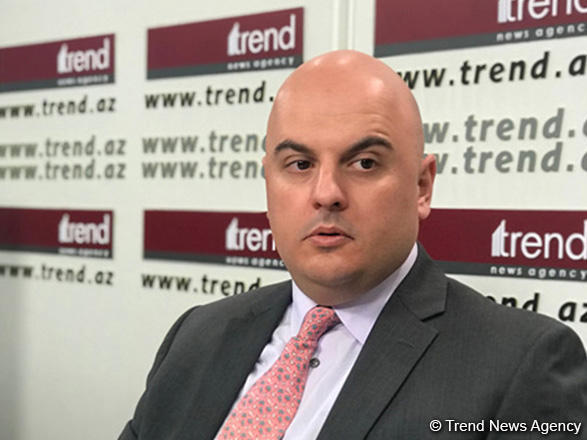Peter Tase: Armenian rhetoric is threat to int’l investors willing to work in S. Caucasus

By Trend
Armenian rhetoric is a threat to large strategic international investors that are willing to work in the South Caucasus, Peter M. Tase, strategic adviser on international affairs and public diplomacy to governments, universities and corporations in Europe and the Americas told Trend.
He was commenting on the recent remarks made by Armenian Prime Minister Nikol Pashinyan.
Armenian Prime Minister Nikol Pashinyan visited the occupied Azerbaijani territories on August 5, 2019, where he attended the "opening ceremony" of “Pan-Armenian Games”. During the "opening ceremony", Pashinyan made a provocative statement, calling Nagorno-Karabakh "an integral part of Armenia".
“Armenian rhetoric is harmful, devastating and is a threat to large strategic international investors that are willing to work in the South Caucasus and establish their business operations in this region. These statements are equally harmful to the ongoing economic stagnation and high level of corruption that has permeated on every ministry of Armenian government,” noted Tase.
The US expert pointed out that the truculent discourse of Pashinyan illustrates his authoritarian leadership style.
“Nikol Pashinyan is the worst representation of a responsible leadership in Europe and throughout the world. Since the early days as Armenia's Prime Minister, Pashinyan has demonstrated willingness to repeatedly violate international laws and pursue a path of inflammatory remarks and aggressive behavior - before his countrymen - in solving the Nagorno-Karabakh conflict,” said Tase.
He said what is equally upsetting is the fact that OSCE, the world's largest security intergovernmental organization, over the last two years has showed a poor leadership in guiding Armenian authorities towards respecting the international humanitarian laws, UN Security Council resolutions.
“International Community must not tolerate the eruption of such inflammatory remarks articulated by Pashinyan. It is full responsibility of OSCE to convince Yerevan's leadership to refrain from acts of violence and to urgently withdraw Armenian Armed Forces from the sovereign territory of Azerbaijan. On the other hand, pragmatic diplomatic initiatives of Azerbaijan will always prevail in spite of the confusing silence and ambiguity that is coming from Brussels and OSCE leadership,” said the US expert.
“The peaceful resolution of Nagorno-Karabakh conflict depends on the active involvement of international community and on its constant genuine efforts to avoid embracing double standards against Azerbaijan,” Tase concluded.
The conflict between the two South Caucasus countries began in 1988 when Armenia made territorial claims against Azerbaijan. As a result of the ensuing war, Armenian armed forces occupied 20 percent of Azerbaijan, including the Nagorno-Karabakh region and seven surrounding districts.
The 1994 ceasefire agreement was followed by peace negotiations. Armenia has not yet implemented four UN Security Council resolutions on withdrawal of its armed forces from Nagorno-Karabakh and the surrounding districts.
---
Follow us on Twitter @AzerNewsAz
Here we are to serve you with news right now. It does not cost much, but worth your attention.
Choose to support open, independent, quality journalism and subscribe on a monthly basis.
By subscribing to our online newspaper, you can have full digital access to all news, analysis, and much more.
You can also follow AzerNEWS on Twitter @AzerNewsAz or Facebook @AzerNewsNewspaper
Thank you!
